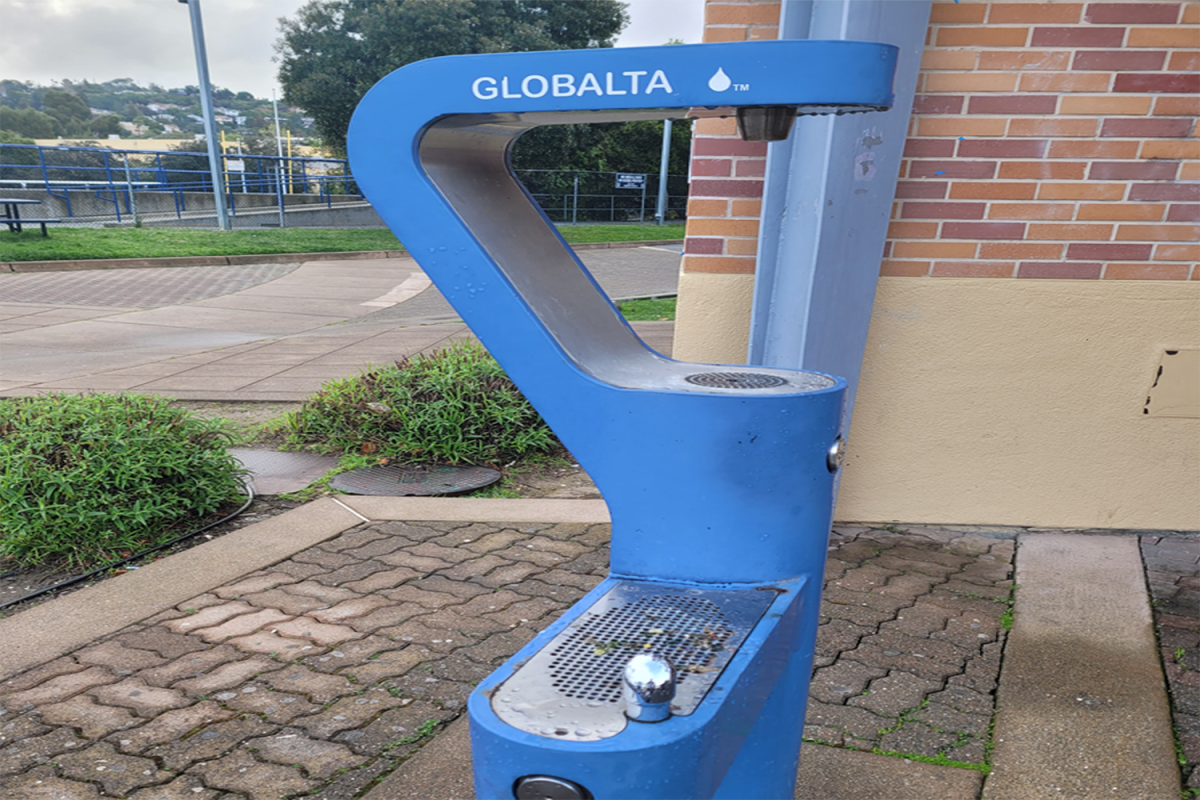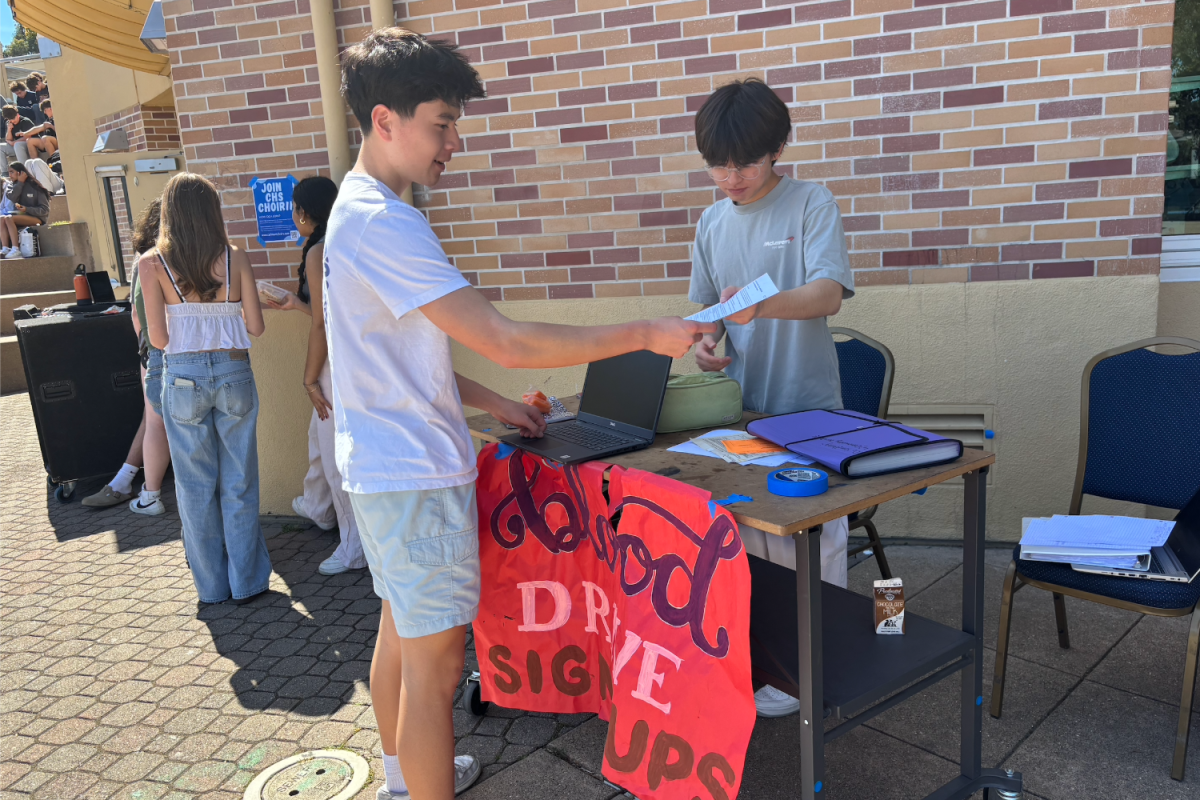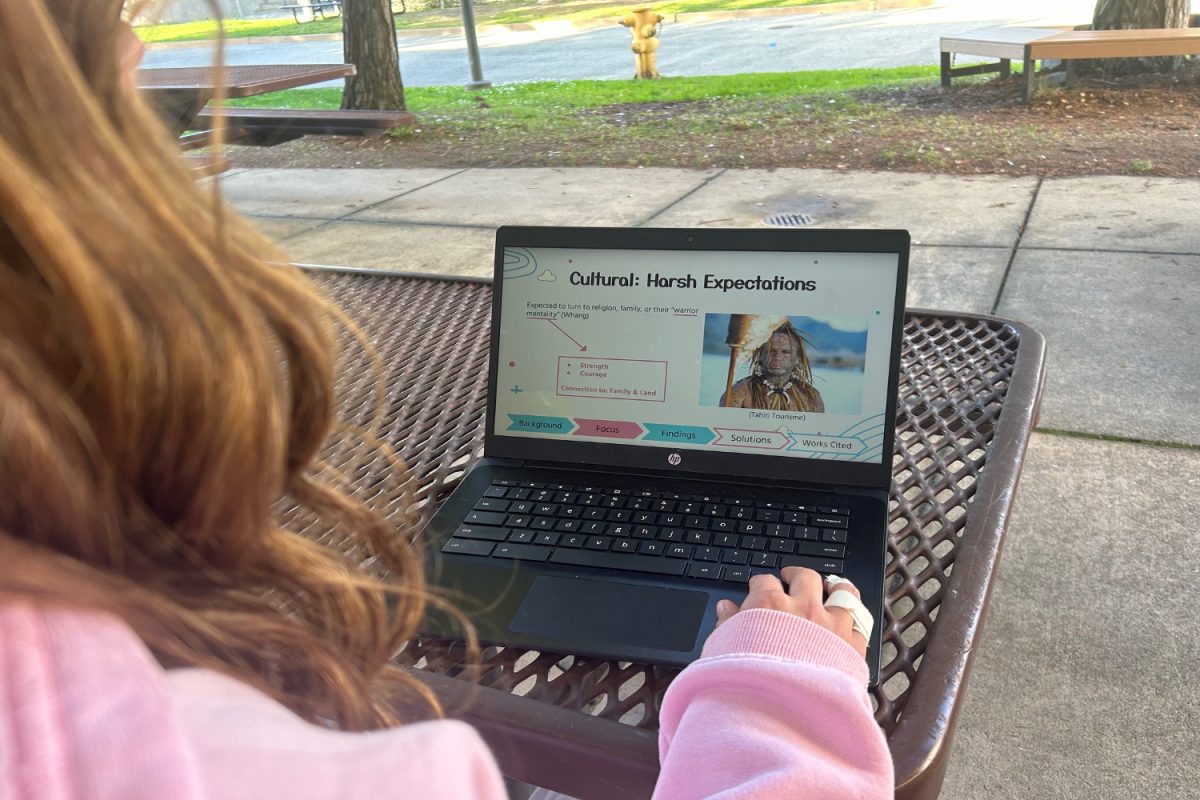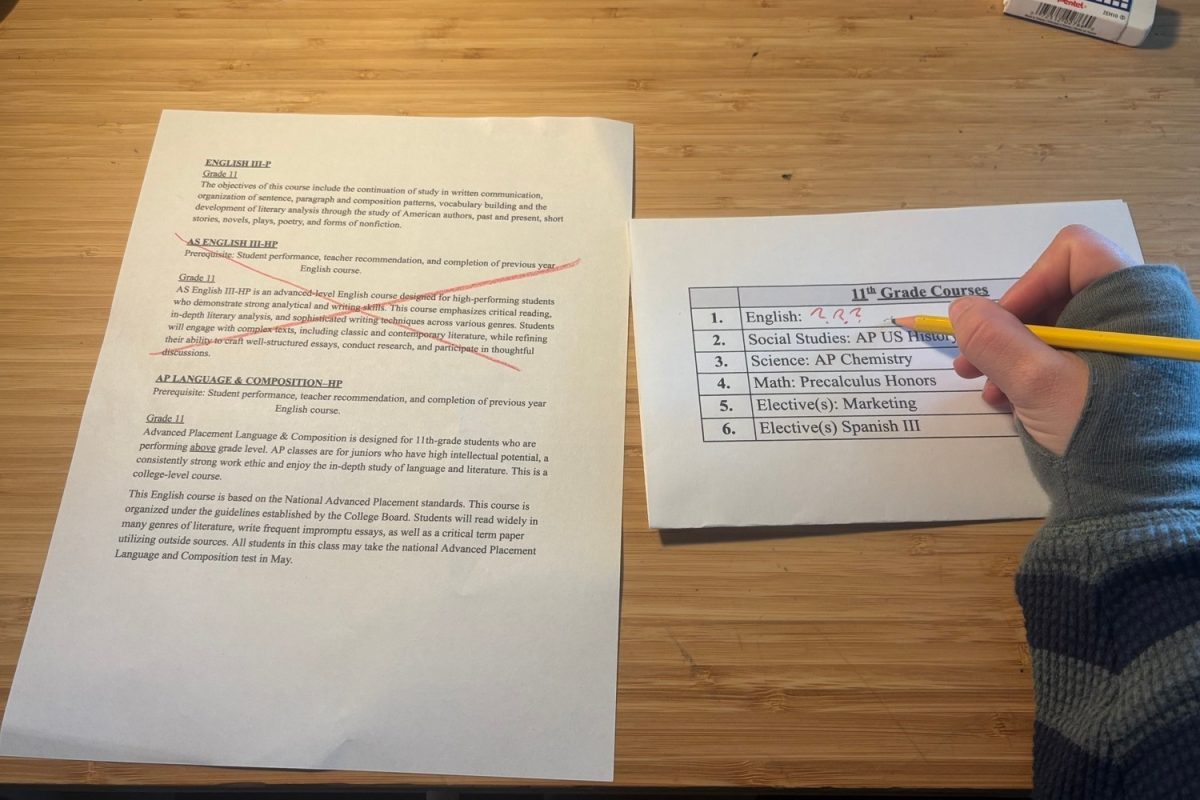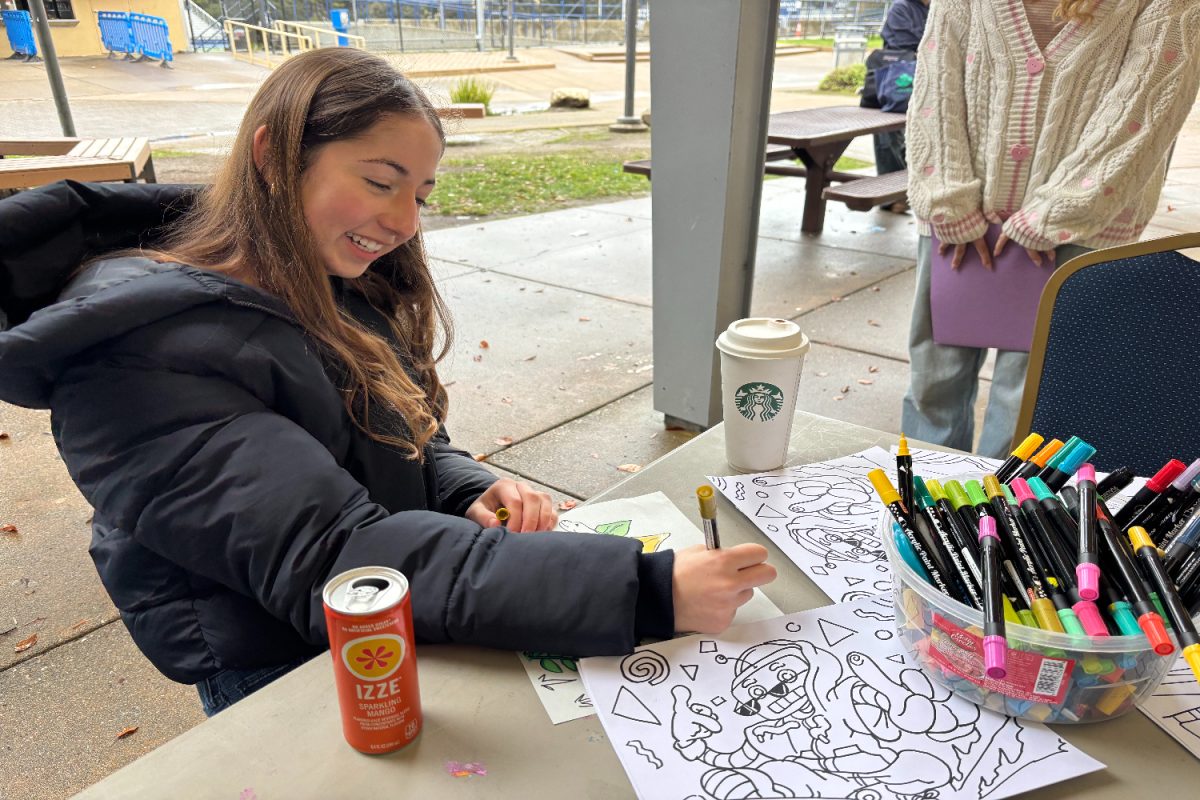As seniors start to obsess over college applications and juniors begin to delve into the possibilities of their post-high school plans, dreary questions nag in the back of the mind of the average upperclassman: What do college admission officers want to see from me? How do I know what colleges I want to apply to?
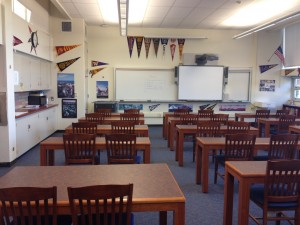
This is where Carlmont’s in-school college meetings come into play. These informational seminar-like assemblages occur frequently on campus during autumn. At a typical meeting, a college representative from a specific school gathers with juniors and seniors, giving a presentation on the school while highlighting what their university searches for in an applicant.
The meetings offer a setting in which students don’t feel intimidated to talk to representatives about applications, which is sometimes the case when students are by themselves at college fairs.
“The college meeting I attended was very helpful, and I learned so much about the school,” said junior Sophie Fox, who went to the meeting held by a Columbia University representative. Fox said, “It was amazing that I was able to meet and actually talk with the person who reads the applications.”
While student feedback on the meetings is generally positive, there is one downside to attending the presentations. Upperclassmen typically miss one class each time they attend a meeting, and teachers are not responding positively.
History teacher David Gomez said, “I understand that if a student needs to explore a certain college, they can miss one period. However, when some of my students kept leaving to go to the college meetings, I got the sense that they were just trying to get out of class.”
Carlmont’s college counselor Connie Dominguez, who runs the operation, allows any school representative who requests a meeting time to give a presentation. Many visiting school spokesmen come from universities on the East Coast, while some presenting schools, like UCs, are local and easily accessible to students from the Bay Area.
“If the university delegate is from a college far away, it makes sense for interested or questioning students to attend the meeting. If kids are able to visit the school easily, they should not be missing valuable class time because of the meeting,” said physics teacher Brian Ellis, who teaches many students who choose to go to the college meetings over his classes.
Dominguez allows only upperclassmen to attend the presentations. Juniors and seniors are allowed five college meetings each to sit in on, so the issue of missing class time does not become a major problem for the students, who have often have rigorous class work as upperclassmen.
October is the main season for advocating for college applicants, but there are approximately three college meetings scheduled for November. Dominguez hopes that next autumn will bring an abundant choice of college representatives for students to meet with.
Dominguez said, “If a student is interested in a certain university but is not able to attend the school’s presentation, it is not the end of the world, as there are many other resources teens can access. However, the meetings have proved valuable and are beneficial to attend if a student has no chance of visiting the school.”

